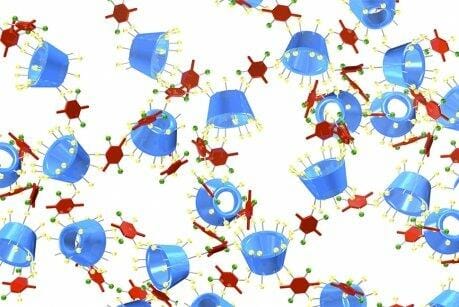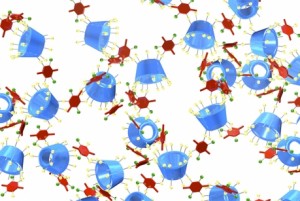A More Potent Water Purification System Based on Cyclodextrin

A team of researchers form Cornell University has developed a water purifier based on a cyclodextrin modification. The original polymer, a compound used in air fresheners, was tweaked into a porous form that increases its adsorbance to water contaminants 200-fold. The findings were published in Nature.
Dr. Dichtel’s team received a National Science Foundation grant to find high-performance, sustainable materials. Shortly after, they hypothesized that the pollutant-binding properties of cyclodextrin could be applied to water purification. Activated carbons are commonly used for water treatment; they have more binding sites for pollutant molecules than cyclodextrin. However, they have several drawbacks. Their binding capacity is weak, their regeneration involves intense heat treatments, and their pollutant uptake can take hours. On the other hand, cyclodextrin is a cheap and sustainable product, obtainable from starch with a set of easily available enzymes. It is known for encapsulating pollutants from host-guest complexes. Cyclodextrin’s main disadvantage is its low surface area.
Activated carbon and cyclodextrin: combining the best of each material
Dichtel’s group planned to combine the high surface area of activated carbon materials with the binding strength of cyclodextrin. The researchers crosslinked cyclodextrin with rigid aromatic groups, which resulted in a porous polymer with a high-surface-area. The new material removes pollutants in seconds, potentially allowing for a low-energy water purification system as water flows through. The polymer can be regenerated by cleaning it with ethanol or methanol at room temperature, without loss in performance.
Dr. Helbling helped in testing the polymer in “real-life” conditions. They analyzed the polymer’s ability to bind to many different types of contaminants at the same time, at environmentally relevant concentrations. The observed results were positive and repeatable.
The new water cleaning polymer is a sustainable, petroleum-free solution that could save and improve the lives of thousands of people. Scalability of the system is being currently tested with prototype filters.
Source: Cornell

